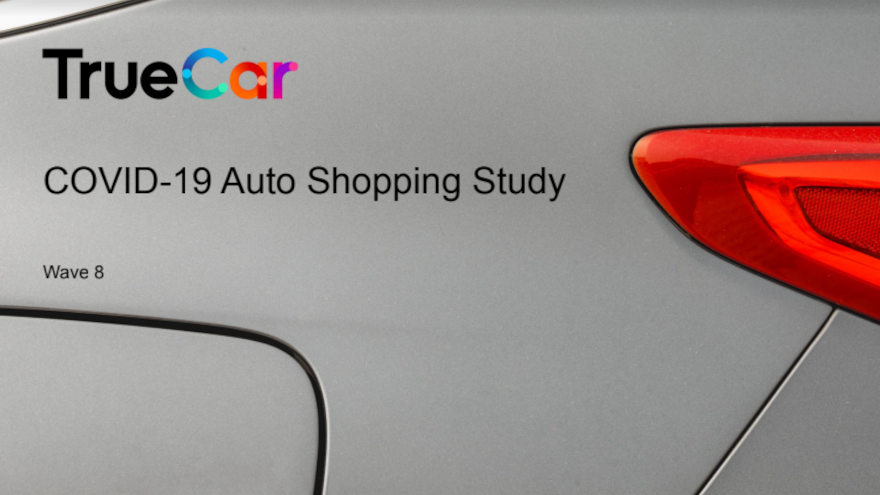Potentially lower income a top vehicle purchase deterrent

Image from TrueCar.
By subscribing, you agree to receive communications from Auto Remarketing and our partners in accordance with our Privacy Policy. We may share your information with select partners and sponsors who may contact you about their products and services. You may unsubscribe at any time.
SANTA MONICA, Calif. –
TrueCar released the eighth wave of its study on the pandemic’s impact on vehicle shopping and vehicle shoppers’ needs, noting that concerns about future potentially diminished income are now a top factor in deterring a vehicle purchase.
Meanwhile, the threat of catching or spreading COVID-19 while shopping as a factor discouraging a vehicle purchase is at its lowest point during TrueCar’s study series.
As the pandemic has reached its one-year milestone, many people are receiving vaccinations while warmer weather is bringing more outdoor activity, said TrueCar head of research and consumer insights Wendy McMullin.
“So, it’s no surprise that we’re seeing somewhat less concern over COVID-19 transmission while vehicle shopping,” McMullin said in a news release. “Instead, we’re seeing financial concerns emerge as stronger purchase deterrents, possibly reflecting the return of less affluent shoppers to the market.”
Consumers still want more of the car-buying process to take place outside the dealership, and TrueCar expects that trend to continue even after the pandemic, McMullin said.
The TrueCar study took place on March 12, and at that time, more than 70 million Americans had received at least one dose of a COVID-19 vaccine.
Subscribe to Auto Remarketing to stay informed and stay ahead.
By subscribing, you agree to receive communications from Auto Remarketing and our partners in accordance with our Privacy Policy. We may share your information with select partners and sponsors who may contact you about their products and services. You may unsubscribe at any time.
But along with reporting that good news, the survey noted that concerns about potentially diminished future income are a factor for 35% of respondents to deter a vehicle purchase, while 30% say lower income now is a concern.
The dealership not having the vehicle consumers wanted reached its peak at 35% as a factor that would deter a vehicle purchase. That is a 46% increase since July.
TrueCar lead industry analyst Nick Woolard said the industry is still seeing the downstream effect of automaker manufacturing plant closures.
“This has reduced the number of new cars on dealer lots, which means fewer model and trim options for car buyers,” Woolard said.
Woolard also said, “This helps explain why over a third of consumers indicated that not having the car they want on the dealer lot is delaying or deterring their car purchase, impacting the demand side of the market.”
The survey also noted factors that encourage dealership interaction, and the top three are configuring the deal online, performing an at-home test drive, and completing the entire purchase online.
The effect of COVID-19 on vehicle shopping is a main topic of the survey, and 17% of respondents said their interest in vehicle delivery has increased. Twenty-three percent of respondents said they would purchase a less-expensive vehicle, and 29% said their vehicle needs have increased as a result of the pandemic, which is more than any prior wave of the study.
More details on some of the study’s top findings:
— Forty-nine percent of auto shoppers are very concerned or extremely concerned about COVID exposure regarding their vehicle purchase process. That is a decline from 55% in the study’s wave 7 conducted in January.
— Shopper desire for completing the entire purchase online has decreased, but a strong desire exists for components of remote buying. For example, 39% of shoppers would be encouraged to work with a dealership that allows them to configure their deal online. Thirty-nine percent of shoppers would be encouraged to work with a dealership that allows them to configure their deal online. Thirty-seven percent of shoppers would be encouraged to work with a dealership offering at-home test drives, and 22% of shoppers would be encouraged to work with a dealership offering a seven-day vehicle return policy.


